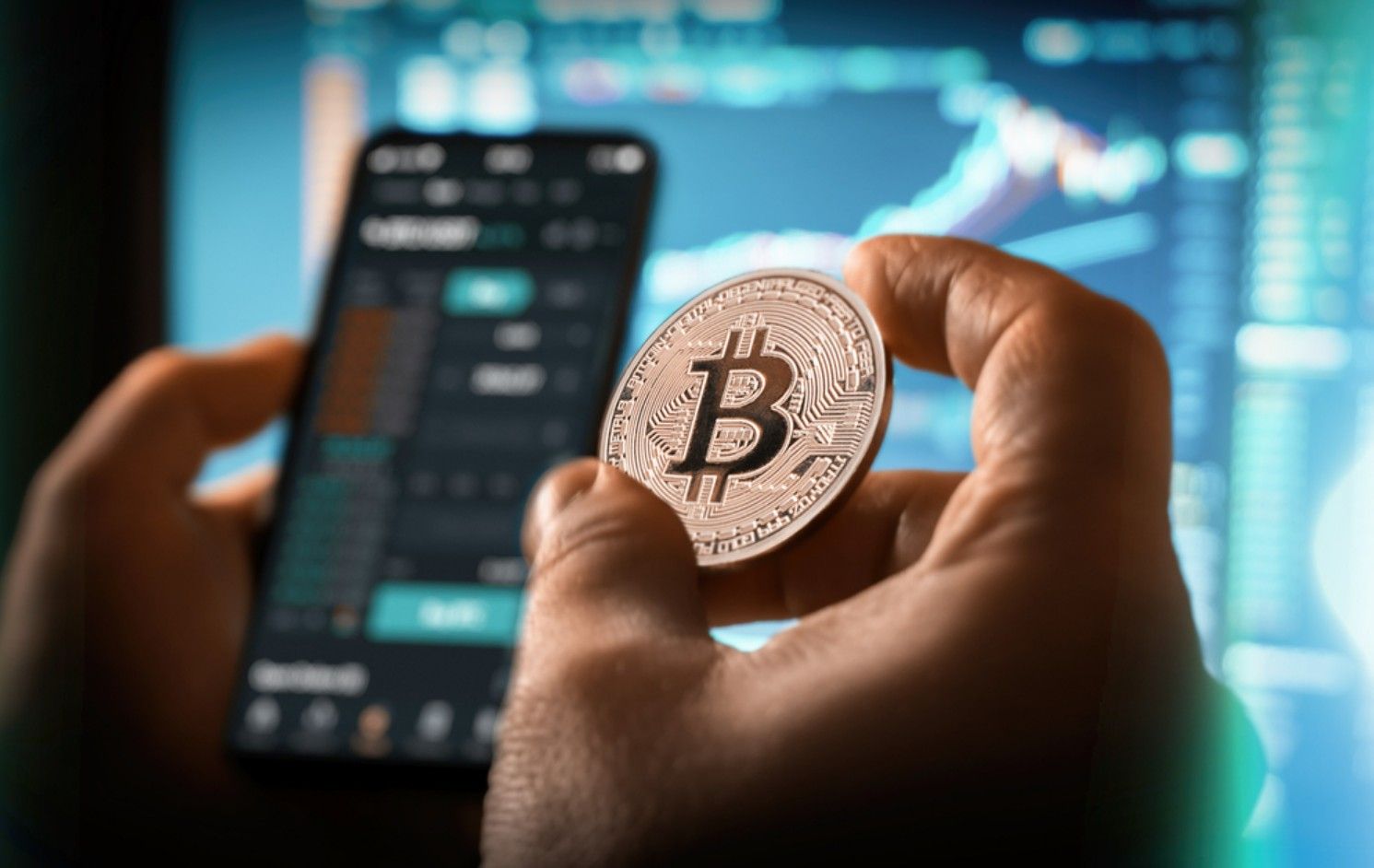The crypto space has exploded with platforms offering everything from spot trading to leveraged derivatives and DeFi tools. Amidst this boom, users are spoiled for choice, but also face a dizzying dilemma. On one end of the spectrum lie well-established platforms like Binance and Coinbase. Both examples are licensed, regulated, and have a long track record of user trust. On the other side, there are newer, unregulated players promising cutting-edge tools, lightning-fast trades, and exposure to meme tokens or low-cap gems not found elsewhere.
Many of these emerging platforms position themselves as software or infrastructure providers rather than traditional financial service companies. While this model can encourage decentralization and product innovation, it sometimes comes with fewer regulatory guardrails, limited transparency, or ambiguous terms around user protections. This doesn’t automatically mean bad intent, but it does highlight the importance of doing your own research.
Axiom Trade is one such platform generating buzz. Built on the Solana ecosystem, it aims to deliver a sleek, trader-first experience for crypto natives, particularly those active in the memecoin space. Its interface and tools have caught the attention of a growing community, but like many new platforms, it also raises fair questions around regulatory clarity, user experience, and fund security.
In this guide, we take an objective look at Axiom Trade, exploring its core features, security approach, and community feedback to help you decide if it’s a platform worth trusting.
Key Takeaways
- Axiom Trade is not a regulated exchange but is considered legit due to its Y Combinator backing, public founders, and on-chain, non-custodial trading model.
- The platform is designed for advanced DeFi users and memecoin traders, offering features like wallet tracking, perpetuals, sentiment analytics, and sniper bot protection.
- User reviews are mixed: Some highlight smooth execution and niche tools, while others cite withdrawal delays and surprise KYC prompts.
- Axiom does not custody funds; users retain full wallet control, which improves security but also places responsibility for key management and loss prevention on the user.
- While promising for power users, Axiom's lack of regulatory licensing, coupled with inconsistent support, may not suit beginners or risk-averse traders.
Why Legitimacy Matters in Online Trading
Trading online has never been easier…or riskier. With countless platforms promising big returns and sleek interfaces, it’s easy to get swept up in the hype. But before you sign up and fund that first trade, it’s crucial to zoom out and consider what really matters: the platform’s legitimacy.
Let's explore why that matters now more than ever and what exactly we’re going to cover in this deep dive on Axiom Trade.
Rise of Online Trading Platforms
Lately, trading markets have gone from exclusive hangouts for Wall Street pros to vibrant marketplaces anyone with an internet connection can stroll into. With just a few clicks, traders of all experiences can jump into forex, crypto, or CFD trading from anywhere. That’s empowering, but it also opens the floodgates for some questionable players.
See, with the boom of accessible platforms comes a darker side: unregulated brokers sprouting like weeds. A site may promise ultra-low spreads or “insider” data, only to vanish when it’s time to withdraw your money. Worse still, some platforms are built solely to collect your deposit and ghost you, or worse, sell your data or manipulate the markets against you. That’s why legitimacy is your first line of defense.
What Readers Should Expect from This Guide
Throughout this article, we’re taking a laser-focused, no-nonsense approach. First, we’ll check out objective legitimacy criteria: think regulation, transparent fee structures, and verifiable ownership. Next, we’ll comb through real user reviews, identifying patterns like withdrawal delays, aggressive upselling, or shady customer support. Finally, we’ll evaluate trust signals: Is there licensing? Are fees clearly outlined? Is there an accessible support team or proof of third-party audits?
We’re not here to take marketing claims at face value. Our goal is simple: to sift facts from fluff. This guide will walk you through the key facts, features, and concerns, so you can make an informed call before committing your capital. By the end, you’ll have a clear picture of whether Axiom Trade stands up as a reliable platform or if there are caution flags you shouldn’t overlook.
Company Overview: What Is Axiom Trade?
Before we start judging whether Axiom Trade is a solid place to stash your capital or a sketchy trading pit, it helps to understand who’s behind it and what they’re building.
 While its Vision is Bold and its Tech Exciting, Trust is Currently an Issue. Image via Axiom Trade
While its Vision is Bold and its Tech Exciting, Trust is Currently an Issue. Image via Axiom TradeBackground and History
Axiom Trade made its debut in early 2024, right in the thick of a renewed wave of interest in DeFi and meme coin trading. The platform was co-founded by Henry Zhang and Preston Ellis, both graduates of UC San Diego, and it’s not some solo project in a basement. It’s backed by none other than Y Combinator, one of the world’s top startup accelerators, as part of their Winter 2025 batch.
Headquartered in San Francisco, California, Axiom Trade positions itself as the ultimate destination for high-octane traders in the crypto space. But this isn't your grandpa's forex platform. Axiom is focused on crypto, especially the meme coin, DeFi, and perpetuals crowd. It’s built to support everything from spot trading on Solana to perpetual futures on Hyperliquid, and it includes niche tools like Twitter sentiment trackers, wallet monitors, and even anti-sniper bots to help traders navigate volatile token launches.
This isn’t a typical broker offering stocks, ETFs, and a “diversify your portfolio” pitch. Axiom is crypto-native and zeroed in on traders who want speed, data, and edge.
Check out our in-depth review of Axiom Trade for a comprehensive look at the platform.
Ownership and Transparency
Axiom Trade scores points for putting real names behind the project. Its co-founders are public, active in the community, and backed by Y Combinator, one of the most respected startup accelerators. This kind of visibility and institutional support is a strong trust signal in a space where anonymity is often the norm.
While the platform hasn’t made its legal entity or registration details as front-and-center as some traditional exchanges, this isn’t unusual for early-stage crypto projects focused on innovation and agility. In addition, Axiom Trade is technically a DEX, which isn't typically registered with any regulator.
That said, users who prioritize full regulatory clarity may want to keep an eye on how Axiom evolves as it scales and matures.
Is Axiom Trade Regulated?
Regulation might sound like a boring legal box-tick, but in online trading, especially crypto, it’s one of the clearest lines separating trustworthy platforms from risky ones. Let’s see where Axiom Trade stands on the regulatory spectrum and why it matters if a platform isn't playing by the official rules.
 With the Boom of Accessible Platforms Comes a Darker Side. Image via Shutterstock
With the Boom of Accessible Platforms Comes a Darker Side. Image via ShutterstockLicensing and Authorization
Axiom Trade takes a decentralized-first approach, integrating directly with on-chain protocols and giving users full control over their funds. Unlike traditional platforms that rely on centralized custody and intermediaries, Axiom ensures that all transactions happen transparently and immutably on the Solana blockchain. You never hand over your assets; they remain in your wallet until you choose to trade.
While Axiom is not licensed or regulated by agencies like the SEC, FCA, or ASIC, that’s by design, not oversight. The platform doesn’t operate as a centralized financial institution but rather as a decentralized trading interface. In fact, users can purchase up to $500 worth of crypto per week, no-KYC, through its partnership with Coinbase.
This structure won’t appeal to everyone, especially those seeking traditional legal recourse, but for traders who prioritize self-custody, permissionless access, and on-chain transparency, Axiom Trade offers a compelling alternative.
We do have a lot more on KYC and AML, by the way. Don't miss this important education.
Implications of Unregulated Status
So, what does Axiom’s unregulated status mean for users? It reflects a broader shift in crypto toward decentralized, non-custodial platforms, where control stays in the hands of the user, not a centralized intermediary. Since Axiom Trade doesn’t hold your funds or custody your assets, many of the typical risks associated with centralized exchanges, like frozen withdrawals or mismanaged reserves, are structurally reduced.
That said, operating outside of traditional financial regulation comes with trade-offs. There’s no government-backed safety net or ombudsman to escalate issues to. Dispute resolution relies on the platform’s internal processes and user support, rather than legal mechanisms. And without third-party audits or formal compliance frameworks, users must rely on on-chain transparency, community oversight, and the reputational integrity of the team.
Axiom’s public founders and Y Combinator backing help build trust, but they don’t replace the guarantees that come with licensing. For experienced DeFi users, this model offers freedom, flexibility, and full control. For newer traders, it’s important to weigh these freedoms against the absence of institutional safeguards, and always do your own due diligence before diving in.
Axiom Trade User Reviews – What Are Traders Saying?
Marketing can make any platform look bulletproof, but the real test comes from actual users who’ve signed up, traded, and tried to withdraw funds.
In this section, we look beyond the branding and explore what the crypto community is saying about Axiom Trade, from positive feedback to areas where the platform has room to grow.
 A Platform should not Shy Away from Taking Responsibility and Addressing Customers' Issues. Image via Freepik
A Platform should not Shy Away from Taking Responsibility and Addressing Customers' Issues. Image via FreepikThird-Party Reviews and Ratings
Axiom Trade presents itself as a sleek, forward-thinking platform, but third-party reviews tell a more nuanced story. On sites like Trustpilot, ratings vary widely. Some traders praise the platform’s speed, clean interface, and unique tools tailored to memecoin trading. However, others raise legitimate concerns, especially around identity fragmentation and inconsistent experiences.
Several recent complaints center on:
- Account access issues following deposits, with users unsure when or how their funds could be withdrawn
- Unexpected KYC requests during the withdrawal process, despite initially smooth onboarding
- Slow or unresponsive support, particularly in time-sensitive situations
Complaints and Red Flags
The most common concern raised by users involves withdrawal difficulties. Some traders have reported being unable to move funds off the platform without undergoing unexpected KYC checks, despite Axiom’s branding as a non-custodial, permissionless interface.
There are also scattered allegations, mostly from community forums like Reddit, of potential trading irregularities, such as delayed settlement times, visible slippage during high-volume events, or inconsistent fill rates. While these could be attributed to typical volatility in memecoin markets, they’ve led to questions about transparency and back-end performance during peak activity.
A further point of concern for some users is the platform’s lack of public responses to serious complaints. While Axiom promotes its Y Combinator affiliation and the credibility of its founding team, addressing user concerns directly, especially around fund safety and dispute resolution, would go a long way in building trust.
In a fast-moving industry like crypto, public engagement isn’t just good practice, it’s a key marker of legitimacy. For now, Axiom Trade has room to improve its user-facing communication, particularly in moments when things don’t go as expected.
Key Features and Functionality
Now that we've seen what people say about Axiom, let’s dig into what it does. This section breaks down Axiom’s toolkit and its cost structure.
 Axiom is a Web-Based Terminal, but Sleek and Responsive across Desktops and Phones. Image via Axiom Trade
Axiom is a Web-Based Terminal, but Sleek and Responsive across Desktops and Phones. Image via Axiom TradeTrading Tools and Platform Interface
Axiom is a web-based terminal, sleek and responsive across desktops and phones. The interface is built for speed. Trades execute in ≤ 1 block thanks to colocated nodes and a proprietary execution engine. Charting is powered by TradingView, with one-click orders and advanced types (market, limit, stop-loss), making it feel like a centralized exchange mashed with DeFi chops.
This platform specializes in Solana memecoins and DeFi plays with features like:
- Pulse token discovery scanning new launches, migrations, and on‑chain metrics like developer wallet concentration and bot activity.
- Wallet & Twitter tracking to monitor whale moves and sentiment across social feeds.
- MEV-resistant execution and sniper/bundler protection to avoid front-running and sandwich attacks.
- Perpetual futures up to 50× leverage via Hyperliquid integration.
- Multi‑wallet management under one account for separating strategies and risk.
Overall, this setup caters to both high-frequency traders and meme-coin snipers, offering advanced features like “Turbo Mode” and automated order strategies.
Account Types, Fees, and Spreads
Instead of traditional account tiers, Axiom uses a tiered fee + cashback model tied to trading volume:
| Tier | Gross Fee | Cashback | Net Fee |
|---|---|---|---|
| Wood | 1.00% | 0.05% | 0.95% |
| Bronze | 1.00% | 0.10% | 0.90% |
| Silver | 1.00% | 0.125% | 0.875% |
| Gold | 1.00% | 0.15% | 0.85% |
| Platinum | 1.00% | 0.175% | 0.825% |
| Diamond | 1.00% | 0.20% | 0.80% |
| Champion | 1.00% | 0.25% | 0.75% |
These net rates can be attractive for active traders. Plus, there's a $500/week no‑KYC buy limit via Coinbase integration.
Network fees are extra. Solana gas is low, but Axiom gives you control with priority tips, bribe fees, and MEV protection toggles.
For perpetual futures, Axiom adds a 0.01% Hyperliquid fee on top of base rates; slightly higher, but packaged with convenience.
It's important to note that:
- Gas bribes and MEV premiums aren’t automatically included in fee summaries.
- Perps markup over native Hyperliquid pricing.
- Cashback tiers require trading volume, so beginners may pay more.
Bottom Line
Axiom delivers a robust, feature-rich experience for traders who prioritize speed, analytics, and execution control. Fees are transparent and competitive for active users, though casual traders or those seeking regulated spots might find the perpetual markup and network add-ons a bit steep
Security Measures – How Safe Is Your Data and Money?
Security in the crypto world is about real protections, smart architecture, and transparency. Axiom Trade, to its credit, leans into a non-custodial design, shifting much of the security responsibility back to the user. But how much safety does that actually offer?
 Users Bear Full Responsibility for Wallet Access and Security. Image via Freepik
Users Bear Full Responsibility for Wallet Access and Security. Image via Freepik Data Protection Protocols
Axiom employs SSL encryption for secure data transmission, ensuring that communication between users and the platform is encrypted. Basic protections like email verification and wallet-based authentication are in place, alongside multi-factor authentication (MFA), though the specifics of the MFA system aren’t clearly laid out.
The platform’s security model leans on its partnership with Turnkey, a third-party wallet infrastructure provider known for using air-gapped key management systems. This implies that private keys are never directly exposed to the internet, enhancing resistance against remote breaches.
Fund Safety and Transparency
Axiom’s non-custodial setup means it doesn’t directly store user funds or private keys. Instead, each user generates and controls their own wallet through the platform. During setup, a recovery phrase is provided, and users are urged to back it up using Solana-compatible wallets like Phantom or Solflare (check out the comparison guide here).
Because Axiom never touches user assets, traditional fund segregation is a non-issue. But this also means users bear full responsibility for wallet access and security. Lose your keys? There’s no safety net. But that's how it is non-custodial, right? Still, the trust level on platforms makes or breaks everything in the end.
Withdrawals are supported in SOL and USDC, with options to send assets directly to exchanges or external wallets. Users can view their transaction history within the platform, and all on-chain activity can be independently verified via blockchain explorers.
Final Verdict – Is Axiom Trade Legit or a Potential Risk?
Axiom Trade offers a fast, non-custodial trading experience on Solana, featuring wallet tracking, sentiment tools, and perpetual futures, ideal for crypto-native users and memecoin traders.
However, Axiom isn’t licensed or regulated by any major authority. Reviews are mixed: some highlight useful features and responsive Discord support, while others report withdrawal issues, surprise KYC checks, and limited communication.
Who Should (and Shouldn't) Use Axiom Trade
Axiom Trade may appeal to experienced DeFi users and memecoin speculators who understand the risks, manage their private keys securely, and seek access to early-stage token listings. Its tools are built for fast-paced, tactical decision-making, less so for measured, long-term investing.
Beginners and risk-averse investors may want to steer toward platforms with clearer regulatory frameworks, proven customer support, and more robust safety nets.





